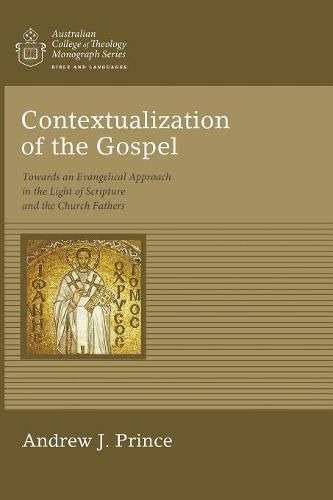Readings Newsletter
Become a Readings Member to make your shopping experience even easier.
Sign in or sign up for free!
You’re not far away from qualifying for FREE standard shipping within Australia
You’ve qualified for FREE standard shipping within Australia
The cart is loading…






This title is printed to order. This book may have been self-published. If so, we cannot guarantee the quality of the content. In the main most books will have gone through the editing process however some may not. We therefore suggest that you be aware of this before ordering this book. If in doubt check either the author or publisher’s details as we are unable to accept any returns unless they are faulty. Please contact us if you have any questions.
There has been heightened interest and prolific publication by missiologists about contextualization since the term was first coined in 1972. There has been ongoing debate, particularly amongst evangelicals themselves regarding which of these meanings, methods, and models of contextualization are acceptable to use. Much of the debate has been carried out by academics and practitioners whose observations and conclusions have been largely shaped by the social sciences and practical theology. In contrast, the disciplines of biblical studies and Christian thought have not featured significantly in the debate. The purpose of this research is to establish that biblical studies and Christian thought in general (and Scripture and the church fathers in particular) have an essential contribution to make in the contextualization debate and should form part of an evangelical approach to contextualization of the gospel alongside the social sciences and practical theology. Following a review of the literature on contextualization over the past forty years, the research examines the book of Acts as representative of Scripture, and the work of John Chrysostom as a representative church father. Contextual principles that are consistent with an evangelical approach to contextualization of the gospel are drawn from each work, establishing the value of biblical studies and Christian thought in contextualization.
$9.00 standard shipping within Australia
FREE standard shipping within Australia for orders over $100.00
Express & International shipping calculated at checkout
This title is printed to order. This book may have been self-published. If so, we cannot guarantee the quality of the content. In the main most books will have gone through the editing process however some may not. We therefore suggest that you be aware of this before ordering this book. If in doubt check either the author or publisher’s details as we are unable to accept any returns unless they are faulty. Please contact us if you have any questions.
There has been heightened interest and prolific publication by missiologists about contextualization since the term was first coined in 1972. There has been ongoing debate, particularly amongst evangelicals themselves regarding which of these meanings, methods, and models of contextualization are acceptable to use. Much of the debate has been carried out by academics and practitioners whose observations and conclusions have been largely shaped by the social sciences and practical theology. In contrast, the disciplines of biblical studies and Christian thought have not featured significantly in the debate. The purpose of this research is to establish that biblical studies and Christian thought in general (and Scripture and the church fathers in particular) have an essential contribution to make in the contextualization debate and should form part of an evangelical approach to contextualization of the gospel alongside the social sciences and practical theology. Following a review of the literature on contextualization over the past forty years, the research examines the book of Acts as representative of Scripture, and the work of John Chrysostom as a representative church father. Contextual principles that are consistent with an evangelical approach to contextualization of the gospel are drawn from each work, establishing the value of biblical studies and Christian thought in contextualization.